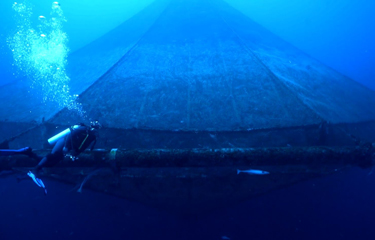Federal aquaculture bill refiled in US Senate for third time since 2018

Three U.S. senators have reintroduced legislation that would open the door for expanded aquaculture in American waters.
U.S. Senators Roger Wicker (R-Mississippi), Brian Schatz (D-Hawaii), and Marco Rubio (R-Florida) are the initial sponsors behind S. 3100, the Advancing the Quality and Understanding of American Aquaculture (AQUAA) Act. The bill would create federal regulations for fish farms established in the country’s exclusive economic zone.
Proponents claim that increased aquaculture would bolster the domestic seafood industry by enabling more fish to be raised and harvested, encouraging a promising new industry to create more jobs, and providing a nutritious source of food to more Americans.
“Aquaculture is a unique opportunity for federal lawmakers to enable American communities to grow sustainable, locally sourced seafood for our families,” said Sarah Brenholt, the campaign manager for Stronger America Through Seafood (SATS), a pro-aquaculture trade group.
Critics fear that allowing for more aquaculture production would hurt existing domestic fisheries, increase pollution in federal waters, and produce a lower-quality product for consumers.
In an interview with SATS released on Monday 1 November, Wicker said aquaculture has “untapped potential” in the United States.
“The AQUAA framework would promote food security for the U.S. and provide economic opportunity for sustainable aquaculture and meaningful jobs,” Wicker said.
The industry has gone from being responsible to just 3 percent of all seafood produced globally in 1950 to nearly half of it 60 years later, but most of that growth has occurred in Asia, according to Wicker, who serves as the top Republican on the Senate Committee on Commerce, Science, and Transportation.
“Seafood is an important part of the U.S. food sector that requires more critical thought. Almost 90 percent of our seafood today is imported, with much of it being produced through aquaculture that is not held to the same health and safety standards as U.S. aquaculture. Producing a greater share of our seafood domestically would help guarantee that what we consume meets our own standards. Investing in aquaculture is a critical step to improving the quality of seafood Americans eat,” Wicker said.
Innovasea CEO David Kelly, whose company is an end-to-end solutions provider for aquaculture developments, said the U.S. has the ninth-largest coastline in the world, giving the country the opportunity to invest in aquaculture while not impacting the country's wild fisheries. However, the U.S. currently ranks 16th in the production of farm-raised seafood, Kelly said.
“The COVID-19 pandemic has demonstrated that global supply chains can be easily and significantly disrupted,” Kelly said. “Passage of the AQUAA Act will greatly improve food security here in the United States by creating a common-sense regulatory framework that enables the development of safe, sustainable fish farming in federal waters. A healthy aquaculture industry here will allow us to reduce our reliance on seafood caught or harvested elsewhere and will also create jobs, protect the environment and give consumers healthier, better-tasting seafood.”
Kelly, a SATS board member, said the lack of a predictable, affordable and efficient permitting process for offshore aquaculture in the U.S. has significantly hindered the growth of the industry. He said aquaculture developers in the United States must navigate a complex and costly approval process involving several agencies that report to various secretaries under the control of the executive branch, including the Environmental Protection Agency, the U.S. Army Corps of Engineers, and NOAA.
Kelly said the positives of offshore aquaculture outweigh any negatives. More than 120 seafood industry leaders and other aquaculture proponents backed a previous version of the bill, demonstrating industry support.
“We know from experience that the deeper waters found in the open ocean provide a better habitat for raising healthy fish, and the greater depths and natural currents also help minimize environmental impacts from fish farming,” he said.
The main provisions of the AQUAA Act include siting, permitting, administration, monitoring, and enforcement, providing “a clear roadmap for regulation, management, and investment in offshore aquaculture,” Wicker said.
“Better regulations would lover barriers to entry and could also help develop best practices for offshore aquaculture, including funding more research and providing technical assistance from experts,” Wicker said.
This marks the third time since 2018 Wicker has filed a version of the AQUAA Act in the Senate. There were related bills filed in the House in 2018 and 2020, but none so far have been posted this year in that chamber.
Industry supporters said the time for passage is now, as the country is still dealing with the COVID-19 pandemic, which has affected several facets of the economy – including shipping and logistics. Former U.S. Rep. Collin Peterson (D-Minnesota) filed the 2020 House bill but lost his bid for reelection that same year.
“I envision aquaculture as a critical component of our food supply chain, which will provide more Americans with nutritional and affordable seafood,” Wicker said. “Sustainable aquaculture is helping to grow a healthy, resilient seafood economy that can withstand and adapt to environmental changes – complementing our nation’s wild-caught fisheries and narrowing the seafood trade deficit. The last several decades of technological innovation have made aquaculture safer and more responsible, and we can be confident that expanding it would provide economic growth without sacrificing environmental integrity.”
Photo courtesy of Innovasea






Share